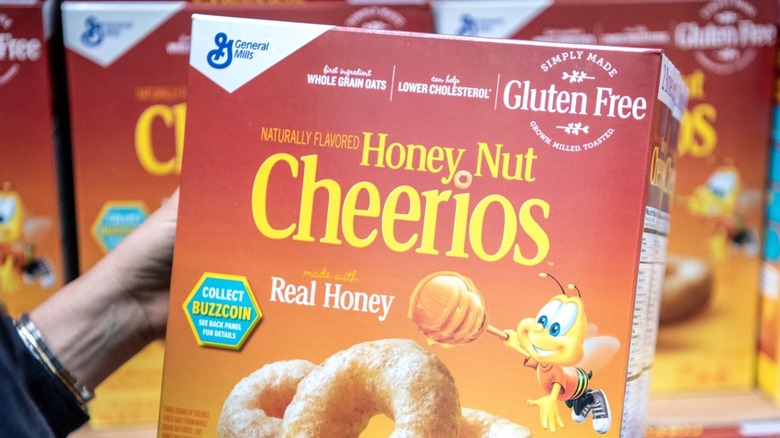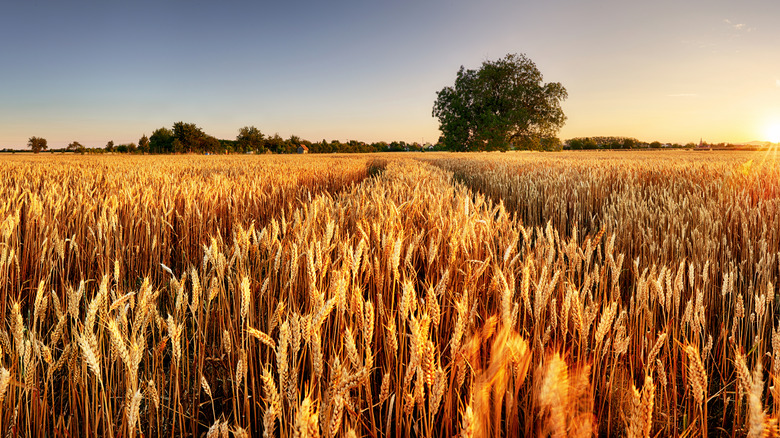The Unexpected Way General Mills Is Becoming More Eco-Friendly
Since 1866, General Mills has been a part of American homes with its production of some of the most popular cereal brands, such as Cheerios, Wheaties, and Lucky Charms, among many others.
The Minnesota-based company, which started as a flour mill on the banks of the mighty Mississippi, is now a multi-billion dollar company that was reported to employ around 35,000 people as of 2020 (via a General Mills report to shareholders).
While General Mills products are some of the most popular in breakfast foods, they came under the spotlight back in 2019 when it was discovered that many of their oat-based cereals contained traces of glyphosate. This is the same chemical you'd find in the weed killer Roundup. This particular chemical was the focus of several lawsuits claiming that it causes cancer (via CBS News).
General Mills responded that food safety was extremely important to them and that they were abiding by FDA and EPA regulations. AgFunder News reports that to redeem its reputation, the company announced it would be introducing new farming strategies, including reducing the need for synthetic pesticides like glyphosate by regenerative agriculture.
General Mills' eco-friendly farming strategy
Following the press release in 2019, Christy Spees, the environmental health program manager of As You Sow, said, "We are encouraged by this action because it is an investment in the future of farmland that will ultimately benefit environmental and human health."
In a General Mills news release on July 27, the company announced a partnership with the Canadian nonprofit company Alternative Land Use Services (ALUS) with an investment of $2.3 million.
According to the nonprofit, "ALUS provides expertise, resources, and direct financial support to communities where farmers and ranchers build nature-based solutions on their land to deliver ecosystem services to sustain agriculture, help build community resilience, and fight climate change and biodiversity loss for the benefit of future generations."
The ultimate goal is zero greenhouse gas emissions by 2050. Advanced regenerative agriculture is a system that helps with climate change because it takes carbon dioxide from the air and puts it back into the ground where the crops grow. General Mills' first goal is to convert one million acres of farmland into this farming method by 2030. This will help the planet and the health of those eating the resulting cereals.

